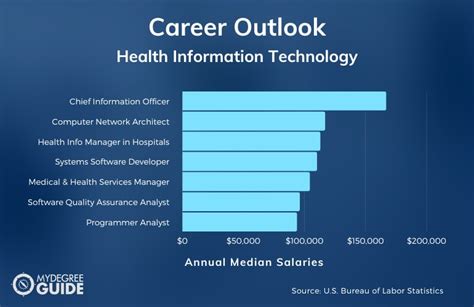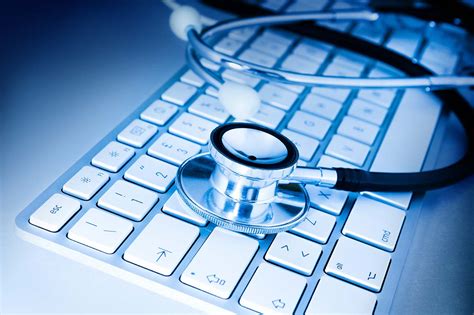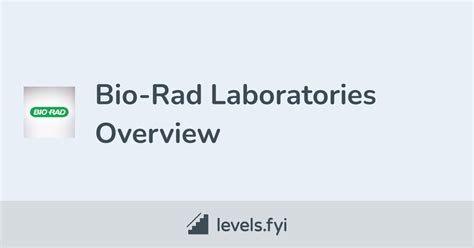Health Information Technology Careers

Health Information Technology (HIT) is a rapidly growing field that plays a crucial role in modern healthcare systems. With the increasing reliance on digital tools and data in medicine, professionals skilled in managing and utilizing health information are in high demand. This comprehensive guide delves into the exciting world of HIT careers, exploring the diverse roles, educational paths, and future prospects within this dynamic industry.
The Evolution of Health Information Technology

The field of Health Information Technology has undergone a remarkable transformation over the past few decades. What began as a simple electronic health record (EHR) system has evolved into a complex network of technologies, data analytics, and digital health solutions. This evolution is driven by the need to improve patient care, enhance clinical decision-making, and streamline healthcare operations.
In the early days, HIT primarily focused on digitizing patient records, ensuring their security, and facilitating their sharing among healthcare providers. However, as technology advanced and healthcare needs became more complex, the scope of HIT expanded significantly. Today, HIT professionals are responsible for a wide range of tasks, including developing and implementing health information systems, analyzing data for insights, ensuring data privacy and security, and integrating emerging technologies into healthcare workflows.
The rapid growth of HIT can be attributed to several factors. Firstly, the increasing adoption of EHR systems and the push for interoperability among healthcare providers have created a demand for skilled professionals who can manage and optimize these systems. Additionally, the rise of precision medicine, population health management, and value-based care models have highlighted the importance of data-driven decision-making, further emphasizing the need for HIT expertise.
Furthermore, the COVID-19 pandemic has accelerated the digital transformation of healthcare, with a surge in telemedicine, remote patient monitoring, and digital health solutions. This has only served to reinforce the critical role that HIT professionals play in ensuring the smooth functioning and effective use of these technologies.
As we delve deeper into the world of HIT careers, it's important to recognize the diverse opportunities and challenges that this field presents. From developing innovative healthcare solutions to addressing privacy and security concerns, HIT professionals are at the forefront of driving positive change in healthcare delivery.
Exploring HIT Career Paths

The field of Health Information Technology offers a wide array of career paths, each with its own unique set of responsibilities and challenges. Here, we’ll explore some of the most prominent roles within the HIT industry, shedding light on the skills, qualifications, and opportunities associated with each.
Health Information Management (HIM) Specialist
Health Information Management Specialists are responsible for the efficient and secure management of health information. They ensure that patient data is accurately recorded, stored, and retrieved when needed. HIM specialists play a crucial role in maintaining the integrity of patient records, which is essential for clinical decision-making and patient safety.
Skills and Qualifications:
- Strong organizational skills for managing large volumes of data.
- Proficiency in using EHR systems and healthcare databases.
- Knowledge of medical terminology and healthcare processes.
- Understanding of data privacy and security regulations (e.g., HIPAA).
- A degree in Health Information Management or a related field is often required.
Clinical Informatics Specialist
Clinical Informatics Specialists bridge the gap between healthcare and technology. They work closely with healthcare providers to design, implement, and optimize clinical information systems. These specialists ensure that technology solutions align with clinical workflows, improving efficiency and patient care.
Skills and Qualifications:
- Proficiency in clinical informatics tools and software.
- Understanding of clinical processes and healthcare delivery.
- Strong analytical skills for data analysis and system optimization.
- Ability to communicate complex technical concepts to clinical staff.
- A master's degree in Clinical Informatics or a related field is typically preferred.
Health Data Analyst
Health Data Analysts are responsible for extracting meaningful insights from healthcare data. They use statistical methods and data analytics tools to identify trends, patterns, and opportunities for improvement. Health Data Analysts play a critical role in supporting evidence-based decision-making and driving healthcare innovation.
Skills and Qualifications:
- Proficiency in statistical analysis and data visualization tools.
- Strong analytical and problem-solving abilities.
- Knowledge of healthcare systems and data sources.
- Understanding of data governance and privacy practices.
- A degree in Health Informatics, Data Science, or a related field is often required.
Health IT Project Manager
Health IT Project Managers oversee the planning, execution, and successful completion of IT projects within healthcare organizations. They manage resources, timelines, and budgets, ensuring that projects are delivered on time and within scope. Health IT Project Managers play a vital role in driving technological advancements and improvements in healthcare.
Skills and Qualifications:
- Project management skills and certification (e.g., PMP)
- Experience in healthcare IT or a related field.
- Strong leadership and communication abilities.
- Understanding of healthcare workflows and IT infrastructure.
- A bachelor's degree in Health Informatics or a related field is typically required.
Telehealth Coordinator
Telehealth Coordinators are responsible for the planning, implementation, and management of telehealth services within healthcare organizations. They ensure that telehealth technologies are effectively utilized, improving access to care and patient outcomes. With the rise of telemedicine, the role of Telehealth Coordinators has become increasingly important.
Skills and Qualifications:
- Proficiency in telehealth technologies and platforms.
- Understanding of healthcare regulations and policies related to telehealth.
- Strong project management and organizational skills.
- Excellent communication and interpersonal abilities.
- A degree in Health Informatics, Healthcare Administration, or a related field is often preferred.
Educational Paths and Professional Development
Pursuing a career in Health Information Technology requires a solid educational foundation and a commitment to ongoing professional development. The specific educational requirements can vary depending on the role and the organization, but here are some common pathways and considerations.
Degree Programs in HIT
Many HIT professionals pursue undergraduate or graduate degrees in Health Information Management, Health Informatics, or a related field. These programs provide a comprehensive understanding of healthcare systems, information technology, and data management. Courses typically cover topics such as healthcare ethics, data analytics, database management, and healthcare law.
Certifications and Credentials
Obtaining industry-recognized certifications can significantly enhance your career prospects in HIT. Some popular certifications include the Certified Health Data Analyst (CHDA) from AHIMA, the Certified Professional in Healthcare Information and Management Systems (CPHIMS), and the Certified Associate in Healthcare Information and Management Systems (CAHIMS). These certifications demonstrate your expertise and commitment to the field.
Continuing Education and Professional Development
The HIT field is constantly evolving, with new technologies and best practices emerging regularly. To stay relevant and competitive, it’s essential to engage in continuous learning and professional development. This can include attending conferences, workshops, and webinars, as well as pursuing advanced degrees or specialized certifications.
Networking and Mentorship
Building a strong professional network and seeking mentorship can greatly benefit your career in HIT. Attend industry events, join professional organizations such as the Healthcare Information and Management Systems Society (HIMSS), and connect with experienced professionals in your field. Mentorship can provide valuable insights, guidance, and support as you navigate your career path.
The Future of Health Information Technology
The future of Health Information Technology is brimming with potential and promise. As technology continues to advance and healthcare needs become more complex, the role of HIT professionals will only grow in importance. Here, we explore some of the key trends and opportunities that are shaping the future of this dynamic field.
Artificial Intelligence and Machine Learning
Artificial Intelligence (AI) and Machine Learning (ML) are transforming the healthcare landscape, and HIT professionals are at the forefront of this revolution. From predictive analytics to natural language processing, AI and ML are being used to improve clinical decision-making, personalize patient care, and optimize healthcare operations. HIT professionals will play a critical role in implementing and managing these technologies, ensuring their effective and ethical use.
Interoperability and Data Sharing
The healthcare industry is moving towards greater interoperability and data sharing among healthcare providers. This shift is driven by the need to improve patient care, reduce costs, and enhance clinical research. HIT professionals will be instrumental in developing and implementing standards for data exchange, ensuring that patient information can be seamlessly shared across different healthcare systems.
Remote Patient Monitoring and Digital Health
The COVID-19 pandemic has accelerated the adoption of remote patient monitoring and digital health solutions. HIT professionals will be responsible for integrating these technologies into healthcare workflows, ensuring their security and privacy, and supporting their effective use by patients and healthcare providers. The future of healthcare will increasingly rely on digital tools, and HIT professionals will play a pivotal role in this transformation.
Population Health Management
Population health management focuses on improving the health outcomes of entire populations rather than individual patients. HIT professionals will be key in developing data-driven strategies to identify and address health disparities, manage chronic conditions, and promote preventive care. By analyzing large datasets and identifying trends, HIT professionals can support the development of targeted interventions and policies to improve population health.
Cybersecurity and Data Privacy
With the increasing reliance on digital health solutions and the growth of health data, cybersecurity and data privacy have become critical concerns. HIT professionals must stay abreast of emerging threats and best practices to protect patient data and ensure the security of healthcare systems. This includes implementing robust cybersecurity measures, conducting regular audits, and staying informed about evolving privacy regulations.
Conclusion: Embracing the Opportunities in HIT

Health Information Technology offers a wealth of opportunities for professionals seeking to make a meaningful impact in healthcare. From managing patient data to developing innovative digital health solutions, HIT careers are diverse, challenging, and rewarding. As the healthcare industry continues to embrace digital transformation, the demand for skilled HIT professionals will only grow.
Whether you're a recent graduate exploring your career options or an experienced professional looking to transition into HIT, there has never been a better time to pursue a career in this dynamic field. With the right education, skills, and dedication, you can play a vital role in shaping the future of healthcare and improving the lives of patients around the world.
What is the average salary for Health Information Technology professionals?
+Salaries in HIT can vary widely depending on the role, experience, and location. On average, Health Information Management Specialists can earn around 60,000 to 80,000 per year, while Clinical Informatics Specialists and Health Data Analysts often earn between 80,000 and 120,000. Health IT Project Managers and Telehealth Coordinators may fall within a similar range, with potential for higher earnings based on experience and specialization.
What are the key skills needed to succeed in a HIT career?
+Success in a HIT career often requires a combination of technical skills, such as proficiency in healthcare IT systems and data analytics, as well as soft skills like strong communication, problem-solving, and project management abilities. Adaptability and a willingness to learn and stay updated with emerging technologies are also crucial.
How can I stand out in the competitive HIT job market?
+To stand out in the HIT job market, consider pursuing industry-recognized certifications, such as the CHDA or CPHIMS. Building a strong professional network, attending industry events, and gaining practical experience through internships or volunteer work can also enhance your employability. Demonstrating a passion for healthcare and a commitment to continuous learning are key.



